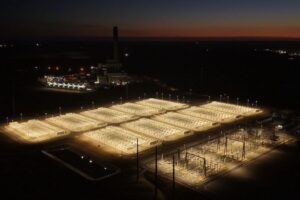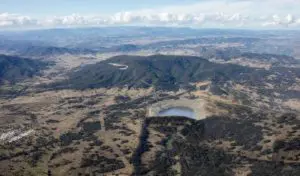Pressure is mounting on the New South Wales Labor government to follow the lead of Victoria and the ACT governments and ban gas connections to new homes in Australia’s most populous state.
The head of nation’s biggest electricity network operator, and even a former state Liberal minister, have urged the NSW government to follow suit.
“I applaud the Victorian government decision to ban new gas connections from 2024, showing a strong commitment to creating a cleaner and more cost-effective future for Australians,” Ausgrid CEO Marc England wrote in a LinkedIn post.
“Banning new gas connections in favour of electrification is not only cost effective, but the best way to achieve a net zero future. I hope to see other states following suit,” added England, who was once head of “new energy” at utility AGL (formerly the Australian Gas Light Co).
In a landmark move on Friday, the Andrews government announced that, from January 1 2024, new homes and residential subdivisions in Victoria will only be allowed to connect to all electric networks, marking a major about face for the state with the highest residential gas use in Australia.
Practically speaking, it’s a relatively small step away from gas – it doesn’t affect the millions of existing residential connections, and not every new-build in Victoria requires a planning permit, under which the law is linked.
However, the vast majority of new homes do need a permit, including housing developments, subdivisions, construction of two or more dwellings, and home extensions.
And in terms of state government policy, and messaging to the powerful fossil fuel lobby, it is a big deal – a fact that is born out by the sometimes hysterical reaction from the fossil fuel industry, the Coalition, and its media cheer squad.
“[It’s] as though the clean, abundant natural gas we have is some kind of dirty pollutant,” said an incredulous Amanda Stoker on her Sunday program on Sky News. “This stuff is just madness.”
The Herald Sun warned that the ban – “a dirty move forced by climate crazies” – would cause electricity in the state to run short. The Australian Financial Review claimed that the ban would only serve to drive up the use of coal-fired power.
The Energy Networks Association – which represents gas networks and electricity networks like Ausgrid – warned the decision was premature “in the absence of a thorough and transparent process.”
“It is critical to carefully consider, with the benefit of all stakeholder perspectives, the whole of energy system implications of significant policy decisions, including impacts on costs, emissions and the most vulnerable,” said CEO Dominique van den Berg.
But as Ausgrid’s England notes, on all of those metrics – costs, emissions and the most vulnerable – kicking gas out of homes is a no-brainer.
“Studies have shown that fully electrified homes have an average total energy cost saving of $34,500 over 10 years compared to gas and petrol-fuelled homes,” he wrote.
Of course, he might say that: Ausgrid supplies electricity for 1.8 million customers in New South Wales, one of Australia’s most coal dependent states, ranging from Sydney to the Central Coast and Hunter regions.
But England has gas connections, too. He worked for more than six years in executive roles at British Gas, two years at AGL, and another six and a half years at the helm of New Zealand gas retailer Genesis Energy before moving to Ausgrid.
Regardless, it doesn’t look like England will get his wish for a similar policy in New South Wales any time soon, if comments from the state’s Labor premier are anything to go by.
“The challenges in energy are serious in NSW,” Labor premier Chris Minns told Sydney radio station 2GB on Monday morning.
“We’ve also got baseload power that’s coming off in the next few years and not enough renewables coming into the system.
“I don’t need another complication or another policy change when the challenges ahead of us are so serious.”
Minns’ statement earned a swift rebuke on LinkedIn from NSW-based Natural Solar CEO Chris Williams, who described the view as “incredibly short sighted.”
“Last I checked, climate change was a pretty significant complication,” Williams wrote.
“Politics is about making tough and bold decisions with a long term viewpoint. Dan Andrews gets it.”
Rob Stokes, the former NSW Liberal party minister for infrastructure who quit politics in March and now chairs the Faith Housing Alliance, the peak body representing community housing providers, also seems to get it.
“I’m gutted Victoria has beaten NSW to ban new residential gas extensions and connections,” Stokes wrote on LinkedIn on Friday.
“It is past time to ensure new subdivisions do not include extensions to the gas network. Health, safety and sustainability make it abundantly clear than residential gas connections should be phased out, not ramped up.
“I urge Chris Minns to reconsider his refusal to ban gas connections in new subdivisions. NSW should be a leader, not a laggard. Congratulations …and kudos to Victoria!”
See more information about quitting gas at SwitchedOn, a special RenewEconomy report and resource on electrification.







